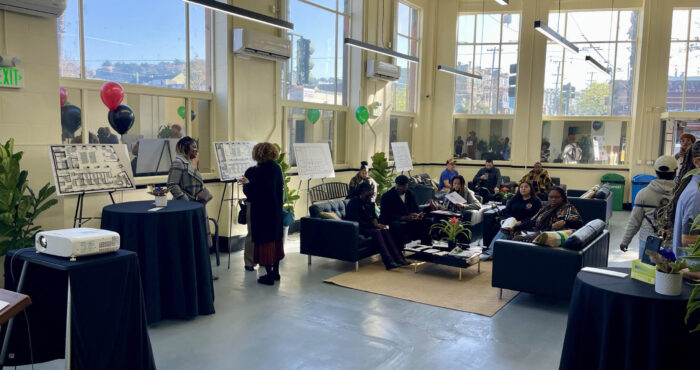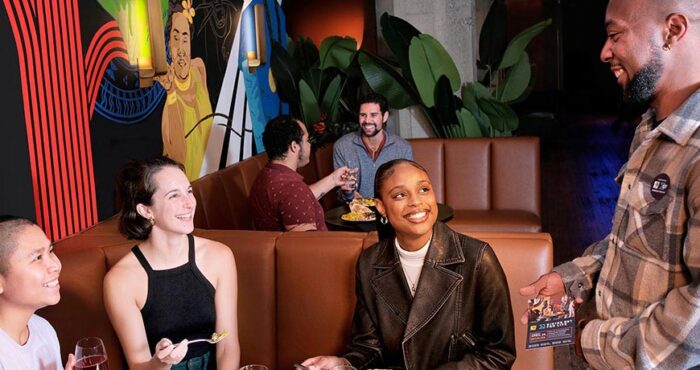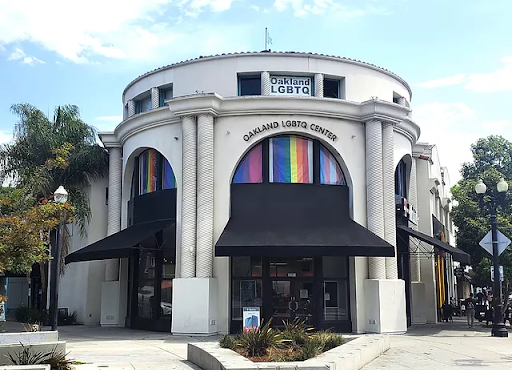Beginning at the end of March, many people using Grindr will notice advertisements for a new service: HIV home test kits that can be mailed for free to your home or other location. Called “TakeMeHome,” the program is a collaboration led by Jen Hecht, MPH, senior director of program strategy & evaluation at SFAF and co-founder of Building Healthy Online Communities, with folks at Emory University, Grindr and NASTAD. In July, the program will expand to include STI home testing.
“We know that 22% of men who have sex with men on dating apps have never testing for HIV,” said Hecht. “So we’re immediately focused on getting as many people who haven’t tested before, or haven’t tested recently, access to these home test kits. Because we’re promoting the service through the apps, there’s not a lot of criteria for people to meet to be eligible–just that they’re over 18 years old and haven’t tested in at least a year.”
People who request a home test kit are mailed a free OraSure kit from a fulfillment vendor. The test provides a result in 20 minutes from an oral swab. People who test positive are provided with over-the-phone support and asked to verify their results with in-person testing. Previous research with participants in Virginia found that 88% of people who test positive with an HIV home test kit seek in-person confirmatory testing.
The home testing program wasn’t developed in response to COVID-19 “shelter-in-place” orders, although demand for home testing may increase with social distancing rules in effect.
“We’ve had additional jurisdictions express interest in TakeMeHome in response to COVID-19,” said Hecht. “In terms of consumer demand for home testing, it’s hard to anticipate how that might change but it seems logical that demand might increase if regular testing services are disrupted.”
Hecht said that the program is the result of two years of collaboration. In that time, Building Healthy Online Communities worked with NASTAD to create a seamless process to handle payment from health jurisdictions, and then have Grindr advertise the service to users in that city or state.
“My goal is in building this platform for as many jurisdictions to be able to participate in as simple a way as possible,” said Hecht. At the end of March, the program will begin in Oregon, Montana, Tennessee and San Francisco. About 20 additional jurisdictions from across the U.S. have expressed interest in the program.
Hecht collaborated with researchers at Emory University, who were able to provide insight and best practices on HIV home testing programs, and Grindr, who supported the program financially and by committing to run free ads for TakeMeHome.
There are many reasons why people who do not access in-person HIV testing may be more inclined to use a home testing kit.
“There are some obvious obstacles,” said Bryan Collins, MFA, from the Virginia Department of Health. “And even one barrier can discourage someone from getting tested. There are a lot of people who don’t drive, who can’t take off time to go to an STD clinic, or who feel that a local health department can’t offer something to them because of discrimination and concern about confidentiality.”
Collins said that stigma, anxiety about getting a result in public, and worry about not being able to afford HIV testing due to a lack of insurance can also prevent people from getting tested.
—
Want to know more?
Find out more at Building Healthy Online Communities.
https://www.bhocpartners.org/home-testing/









